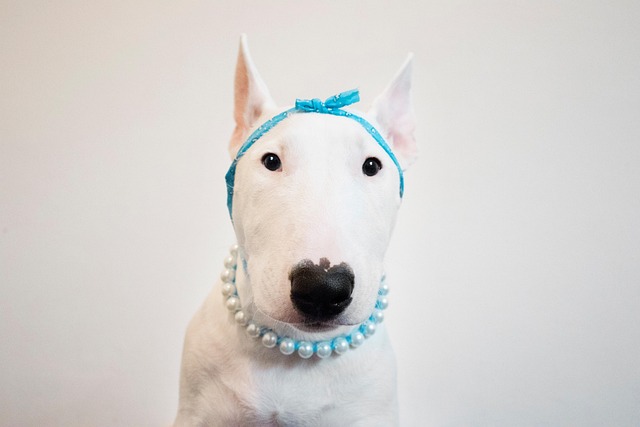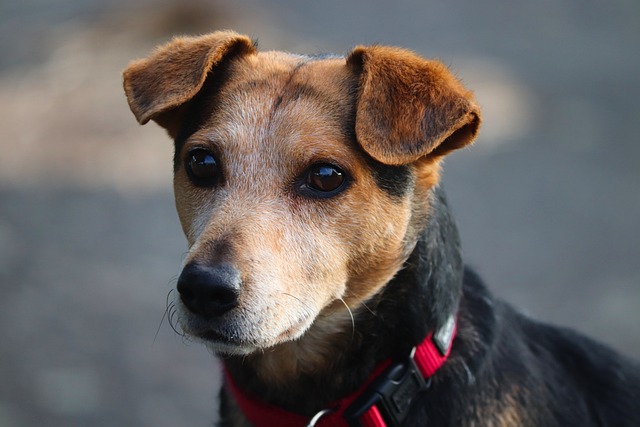
What's wrong with dogs always licking their paws
Watching their furry child constantly licking their paws, with that focused and persistent look, is both heartbreaking and confusing.
When seeing the dog listless and with a loss of appetite due to diarrhea with mucus, and its originally lively eyes full of discomfort and helplessness, the owner's heart seems to be gripped tightly, wishing they could bear the pain for the dog. There are various causes behind a dog's diarrhea with mucus, and finding the appropriate treatment method is the key to helping it recover its health. This not only requires professional medical knowledge but also cannot be separated from the owner's warm company and meticulous care. Every treatment method carries the owner's eager expectation for the dog to recover soon.
The first and crucial step is to take the dog to a professional pet hospital for a comprehensive examination in a timely manner. The veterinarian will, through detailed inquiries, understand the dog's diet, recent changes in the living environment, vaccination records, and other information to initially determine the possible causes of the illness. Then, a comprehensive physical examination will be carried out, observing the dog's mental state, body temperature, heart rate, and other vital signs, and checking whether there are abnormalities such as pain and swelling in the abdomen. A fecal examination is an essential item. By observing pathogens such as parasites, bacteria, and viruses in the feces under a microscope, it is possible to accurately determine whether there are infection factors. A blood test helps to understand the dog's overall health status and determine whether there are problems such as inflammation and anemia. Only through these professional examinations can the cause of the dog's diarrhea with mucus be accurately identified, providing a scientific basis for subsequent treatment. During the process of waiting for the examination results, the owner is filled with anxiety and unease, only hoping that the dog will be okay and that the cause of the illness can be found quickly for treatment.
If the dog's diarrhea with mucus is caused by infection factors, targeted anti-infection treatment is crucial. In the case of a bacterial infection, the veterinarian will select a sensitive antibiotic for treatment based on the results of fecal culture and drug sensitivity tests. For example, for an Escherichia coli infection, antibiotics such as amoxicillin and cephalosporins may be used. These drugs can inhibit the growth and reproduction of bacteria and eliminate inflammation. When using antibiotics for treatment, it is necessary to strictly follow the veterinarian's instructions, control the dosage and the course of treatment. Even if the dog's symptoms are relieved, do not stop the medicine without permission, so as not to allow the bacteria to develop drug resistance and cause the illness to relapse. Watching the dog gradually regain its spirit after taking the medicine, the owner is filled with relief but does not dare to relax at all, paying attention to every reaction of the dog at all times.

For viral infections, there are currently no specific drugs that can directly kill the virus, and the treatment mainly focuses on supportive therapy. For example, for a dog infected with parvovirus, it is necessary to replenish water, electrolytes, and nutrients through infusion to maintain the body's water-salt balance and energy supply and prevent dehydration and electrolyte disorders. At the same time, anti-vomiting and anti-diarrhea drugs will be used to relieve the symptoms and reduce the dog's pain. During the treatment process, the dog's body is very weak and requires more care and company from the owner. The owner will stay by the dog's side, comfort it softly, and wipe its body, hoping to bring it a little warmth and strength to help it overcome the disease.
For diarrhea caused by parasitic infections, deworming treatment is the key. According to the type of parasite, the veterinarian will select the appropriate deworming drug. For internal parasites such as roundworms and tapeworms, commonly used deworming drugs include praziquantel and albendazole, etc.; for coccidia infections, sulfonamides or specialized anti-coccidial drugs will be used. When deworming the dog, it is necessary to strictly follow the drug instructions and the veterinarian's guidance, pay attention to the dosage and usage method of the drug, and avoid causing harm to the dog due to improper use of the drug. After deworming, the owner should closely observe the dog's feces to check whether there are parasites excreted, and at the same time, pay attention to the changes in the dog's mental state and appetite. When seeing that the dog's feces gradually return to normal and its spirit is getting better and better, the stone in the owner's heart gradually drops.
Dietary adjustment also plays an important role in the treatment process of a dog's diarrhea with mucus. During the dog's diarrhea period, temporarily stop feeding ordinary dog food, meat, and other indigestible foods to reduce the burden on the stomach and intestines. The dog can be fasted for a period of time first, generally 6-12 hours, to allow the intestine to have sufficient rest. After that, gradually feed the dog some light and easily digestible foods, such as millet porridge and pumpkin puree. These foods are not only easy to digest and absorb but also can provide the dog with certain nutrients. As the dog's condition improves, gradually transition to a normal diet. In this process, the owner is like taking care of a sick child, carefully preparing every meal, hoping that these warm foods can make the dog's stomach and intestines feel more comfortable and help it recover its health as soon as possible.
In addition, for diarrhea caused by intestinal diseases or stress reactions, treatment needs to be carried out according to the specific situation. If it is enteritis, in addition to using antibiotics or anti-inflammatory drugs for treatment, probiotics can also be supplemented to the dog to regulate the balance of the intestinal flora and promote the recovery of intestinal function. For stress-induced diarrhea, the owner should try to create a quiet and comfortable environment for the dog, reduce external stimuli, and give it enough company and comfort. You can gently stroke the dog's body and talk to it in a gentle voice to make it feel safe and warm. Under the owner's meticulous care, the dog's nervousness gradually eases, and the diarrhea symptoms will also gradually reduce.
The treatment of a dog's diarrhea with mucus is a process that requires patience and carefulness. Every treatment method embodies the owner's deep love for the dog, and every treatment and care is aimed at enabling the dog to get rid of the torture of the illness as soon as possible. During the treatment process, the owner should actively cooperate with the veterinarian and carry out nursing strictly according to the doctor's instructions. Watching the dog gradually regain its former liveliness and cheerfulness under their own meticulous care, all the hard work and efforts become extremely worthwhile. Because in the owner's heart, the dog's health and happiness are the most precious gifts, which are worthy of our protection with all our love.

Watching their furry child constantly licking their paws, with that focused and persistent look, is both heartbreaking and confusing.

When you habitually pet your dog and suddenly notice that its once smooth coat has become rough and prickly, the change in texture will immediately alert you.

When we hold the soft and cute puppies in our hands, their furry little bodies and smart eyes instantly melt our hearts. From that moment on, we shoulder the responsibility of taking care of this little life,

You push open the door to find shredded pillow stuffing, chewed-through cables, or claw-marked door frames scattered across the floor—and in an instant,

When you realize that only your absence triggers your otherwise well-behaved companion into anxious behaviors—scratching at the door, barking incessantly,

When we hold the sweet and juicy soft-seeded pomegranates and look at the round, expectant eyes of the dogs around us, we always feel entangled: Can such delicious fruit be shared with our beloved fur children?